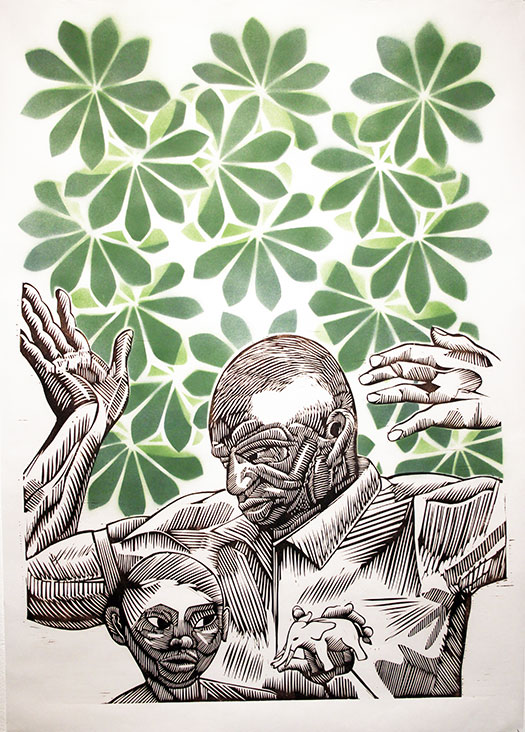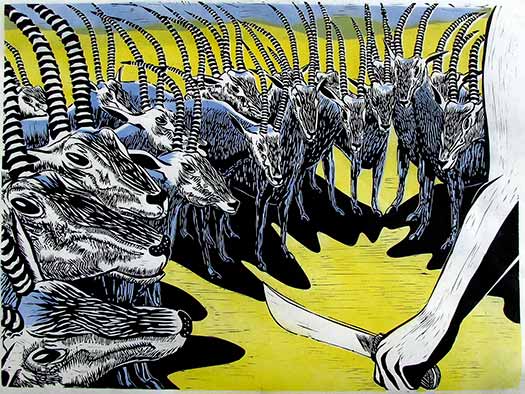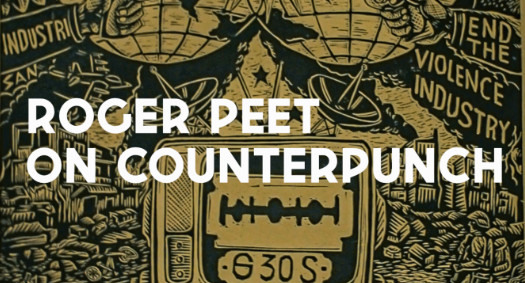In the tiny village of Lole, Maniema Province, eastern Democratic Republic of Congo, I met chief Ngomo Nyati. We spent an evening talking about how the forest around his village had changed since his youth. He described the danger inherent in traveling between villages at night back then, in the sixties, where the savannahs were full of elephants and buffalo. "We couldn't leave the village at night," he said, "because the elephants would kill us." Then the soldiers came, unleashed by Mobutu Sese Seko, the dictator that the US installed in Congo to protect its interests. The soldiers killed all of the elephants, and the buffalo, trafficking their meat and ivory to the cities and to foreign lands, continuing the great cataclysm that commercial interests and western capitalism have wrought on Central Africa's forests and peoples. He shook his head, waving his hand at the darkening forest around us. "My name, Nyati," he said, "means buffalo. Who would name me that now?"
I mentioned the shifting baselines theory, which is the best way for anyone to understand the state of the world we live in. That theory describes the way that each generation establishes a baseline for ecological normalcy in their youth, and fails to understand the ways in which their environment changed prior to their becoming aware of it. Chief Nyati nodded. "My sons have never seen elephants. I've described them, so they have an idea, but they don't really know, and they will never know, what it was like when we were not the masters of this forest."








